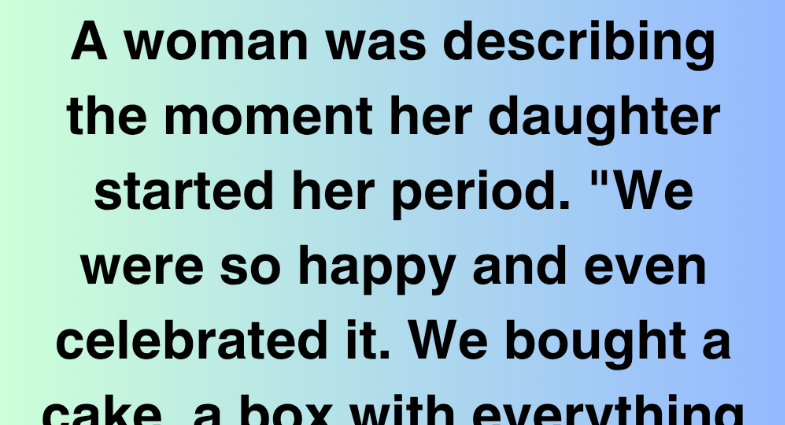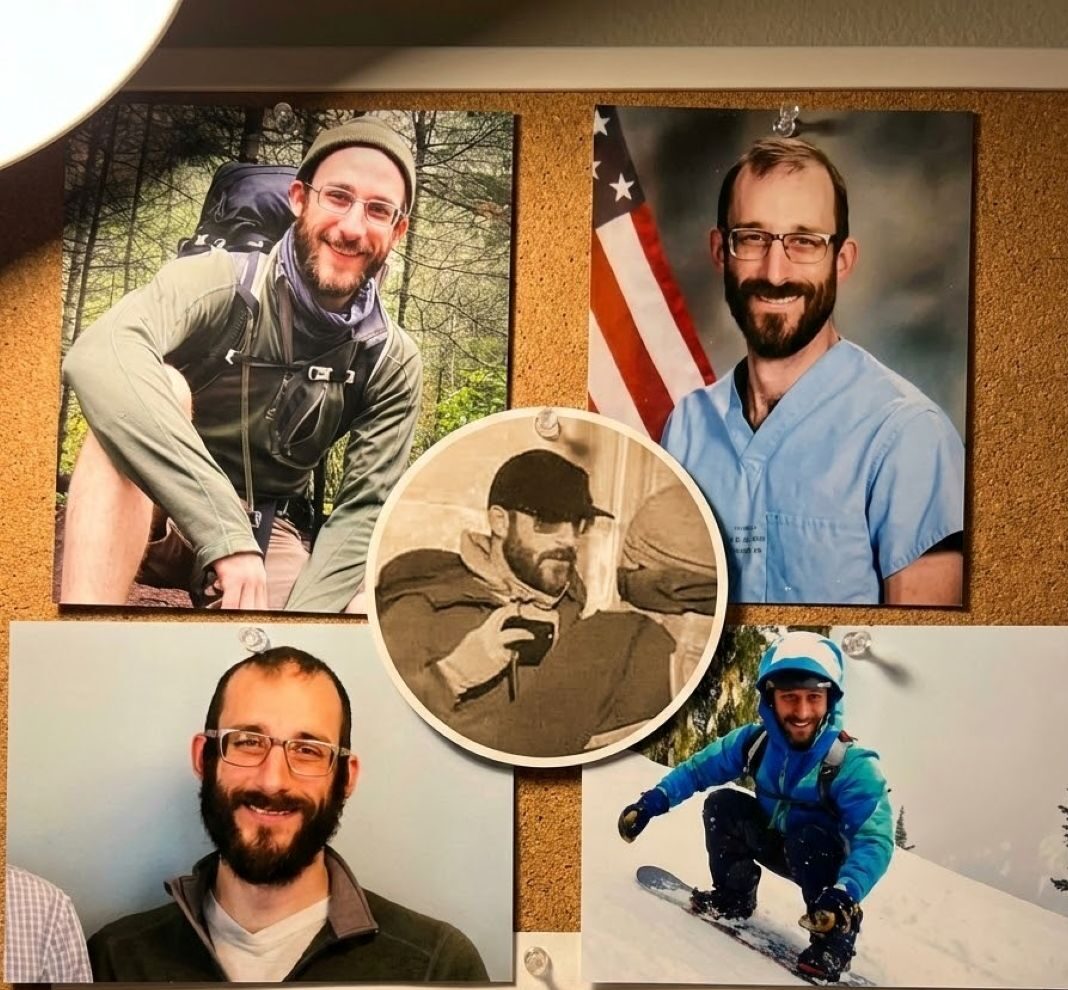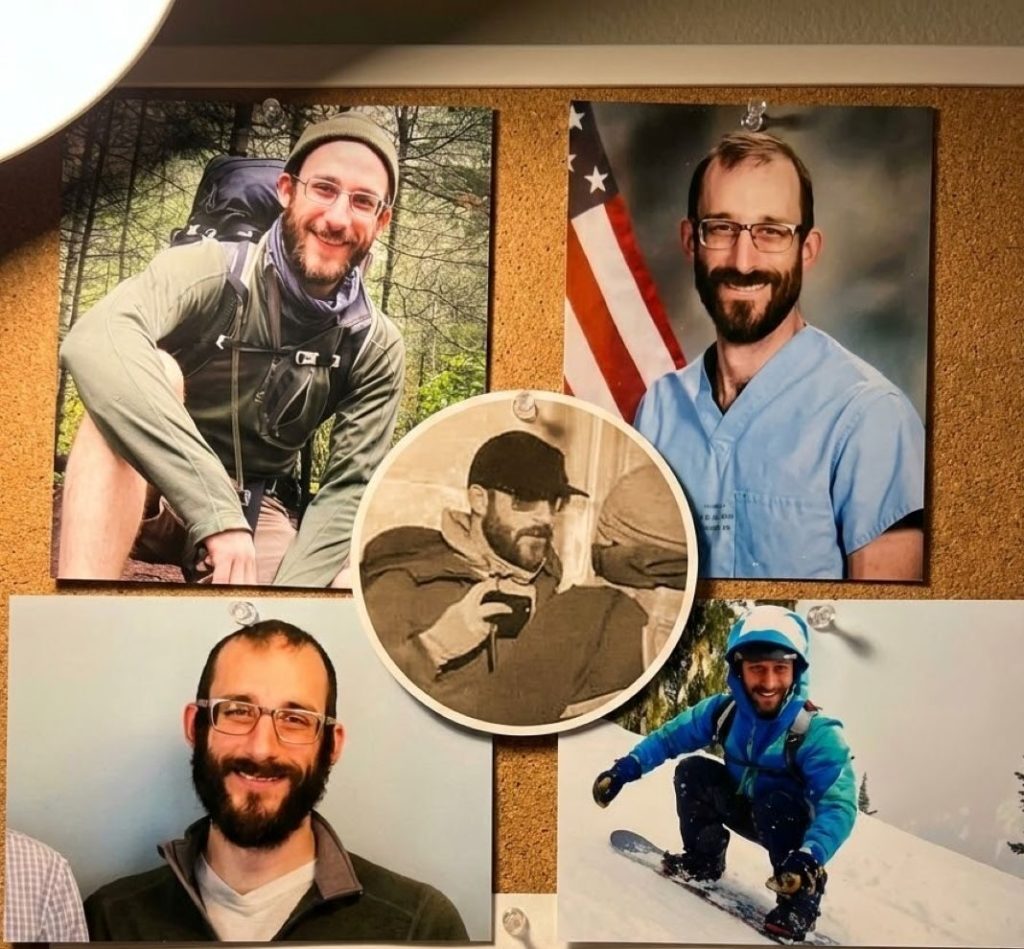A woman shared the experience of her daughter’s first period. “We felt such joy and marked the occasion with delight. We picked up a cake, a kit filled with all the essentials, and guided her through the steps she needed to follow. After one month went by, the daughter returned home and announced,”
“Mama, it didn’t arrive this month.”
I glanced up from the sink, my hands damp, a dish towel draped across my shoulder. Her tone sounded faint, her eyes large as if she had damaged something delicate.
I offered a smile initially. “Everything is fine, sweetheart. This occurs frequently in the early stages. The cycle requires time to stabilize.”
Something in her lingering posture, with fingers pulling at her sleeves, prompted me to wipe my hands swiftly.
She murmured, “I believe I made a mistake.”
My heart experienced an odd sinking sensation. I guided her into the kitchen and encouraged her to take a seat. “Share every detail with me. Start from the initial moment.”
She had reached fourteen years old. Intelligent, imaginative, somewhat reserved near boys, yet passionate about literature and Korean dramas. Our bond felt strong—or that was my perception.
She revealed details about a boy from her class named Ismail. They had connected online, discussing series and songs primarily. “He acted kindly, Mama. He described me as grown-up and mentioned he could share secrets with me that he kept from others.”
Those words triggered numerous waves of alarm within me.
She explained that he had invited her to his home during the midday break—his mother stayed away at that hour. “I avoided any wrongdoing!” she emphasized quickly. “We only conversed. And… we shared a kiss on one occasion. He placed his hands on me. Across my attire. I instructed him to cease. He complied. Yet I sense discomfort. I struggle to draw breath.”
I gripped her hand firmly without noticing until she winced. I released it and worked to hold back tears.
We conversed for sixty minutes. I maintained composure, assured her she carried no fault, praised her for confiding in me, and emphasized that no boy deserved to exert such influence on her.
Later that evening, once she retired to sleep, I positioned myself on the living room floor and wept.
My husband, Efe, emerged and discovered me in that state. He remained silent, simply settled beside me and embraced me.
“We worked diligently to maintain transparency with her,” I expressed. “We honored her milestone. We engaged in discussions with her. How could this occur despite our efforts?”
He moved his head side to side. “She continues to grow in understanding. We do as well.”
On the following day, I contacted the school. My aim focused on prevention rather than drama. I requested a conversation with the counselor, Ms. Rina. She had consistently shown kindness toward my daughter, and I placed confidence in her.
I avoided mentioning specific individuals, simply voiced worry regarding a scenario involving two students who may have overstepped boundaries, leaving my daughter in confusion. Rina displayed empathy. She committed to addressing the matter delicately, preserving privacy, and including me prior to any further actions.
For a period, the situation appeared stable. My daughter grew more subdued, yet she avoided isolation. We organized a weekend outing in nature to refresh our minds.
Approximately fourteen days afterward, the circumstances escalated dramatically.
Ismail’s mother appeared at our entrance.
She clutched her son’s device in her grasp, her expression firm like granite.
“I believe a discussion is necessary,” she stated.
She had uncovered communications. Extensive exchanges of messages, some playful, some innocent, and others that caused unease in my core. Ismail had captured screen recordings of segments from their midday gatherings. For amusement, he claimed to his mother. “I aimed to prove to the group that my words held truth.”
My husband rose abruptly, nearly overturning the chair.
At that moment, Ismail’s mother dissolved into tears. “This is not the way I nurtured him. I promise, it is not.”
She inquired whether she could address my daughter personally. I declined. Not until we determined the appropriate path.
That evening, I encountered an emotion absent since my own adolescence: intense anger that created pain in my torso.
We faced two options: pursue formal channels by engaging the school, potentially authorities… or manage the issue discreetly among the households.
This situation transcended casual excuses for youthful behavior. This represented an issue we refused to resolve through mere regrets.
Consequently, we engaged the school.
That action revealed an unexpected development.
As the school reviewed records and conducted subtle inquiries, they uncovered additional information—Ismail exhibited a recurring behavior.
Two additional girls, one senior and one junior, shared comparable accounts. No violations of law, yet clearly unsuitable. The counselor informed us privately that prior alerts had occurred. “We lacked sufficient grounds for intervention previously.”
On this occasion, proof existed. Recordings. Communications. Captured images.
He received a suspension for the rest of the term. His parents withdrew him from the institution completely.
I anticipated a sense of resolution.
Instead, remorse emerged. My daughter resisted becoming the cause of disruption in someone’s path.
I gathered with her one evening, solely the two of us.
“You caused no harm. His choices led to the outcomes. In reality, you safeguarded other girls who lacked the voice to express themselves.”
She wept while I held her. “Mama, do I remain worthy?”
I affirmed her value. Repeatedly, without end.
The murmurs at school persisted. Young people display harshness when unaware of complete details. Speculations arose. Claims that she fabricated events, that she encouraged him, that she exaggerated.
That prompted my return to the school—once more.
On this visit, I approached with determination.
I sought permission to address the PTA. I positioned myself before thirty guardians and conveyed the essential elements of the events—omitting identities. I explained the implications when girls encounter shame for voicing concerns.
To my astonishment, a woman unfamiliar to me lifted her hand and declared, “My daughter endured a similar experience.”
Followed by another. And yet another.
The moment resembled piercing an opening in a barrier, allowing realities to flow freely.
One guardian proposed establishing a secure gathering—a venue for the girls, along with the parents. An environment blending encouragement and education.
We named it “The Red Bench.”
We convened every alternate Sunday. We explored topics like limits, agreement, self-assurance. We enjoyed beverages and treats, and occasionally we shared tears collectively.
The genuine surprise unfolded several months afterward.
During one session, a woman arrived accompanied by her adolescent son. She was Ismail’s mother.
The young man beside her? His appearance had transformed significantly.
She explained, “He has participated in counseling. We have conversed daily. He wishes to express a message.”
He advanced. His voice wavered, yet he communicated with clarity.
“I regret my actions. I viewed it as entertainment. I failed to comprehend the impact. Now I recognize it. I caused pain to others. I seek to amend it.”
Quietness ensued.
Gradually, one girl inclined her head in acknowledgment.
Another responded, “I appreciate that.”
It failed to eliminate the past, yet it held significance.
My daughter remained silent initially. Later that evening, during the drive, she remarked, “I believe his words carried sincerity.”
I shared that belief.
As time progressed, stability returned. My daughter developed greater poise. She began guiding younger participants in the group.
One afternoon, she approached me and stated, “You know, I feel a sense of pride in our accomplishments.”
I replied, “I share that feeling.”
We initiated the journey with a cake and a festivity. We concluded by constructing a resilient foundation: an area where girls could exist without fear, and where boys could acquire improved understanding.
The essence lies in more than addressing negative occurrences. It involves fostering an environment where such events become rare.
When I reflect today, I understand—we demonstrated courage in honoring her period.
Raising daughters merits beginning with positivity. With candidness.
When that initial cycle arrives, it encompasses biology—along with the foundation of recognizing personal value.
My daughter encounters challenging moments still. She carries herself with greater presence now. She strides with elevation.
As for me? I discovered that guiding children extends beyond oversight of all aspects. It centers on providing a gentle refuge amid turmoil.
Here is my key insight: Initiate conversations before issues arise. Honor the achievements. Embrace the difficulties. Appear even during uncomfortable times.
Perfection in language proves unnecessary. Presence alone suffices.
If this story touched you, consider liking and sharing it—another person may benefit from it greatly.








